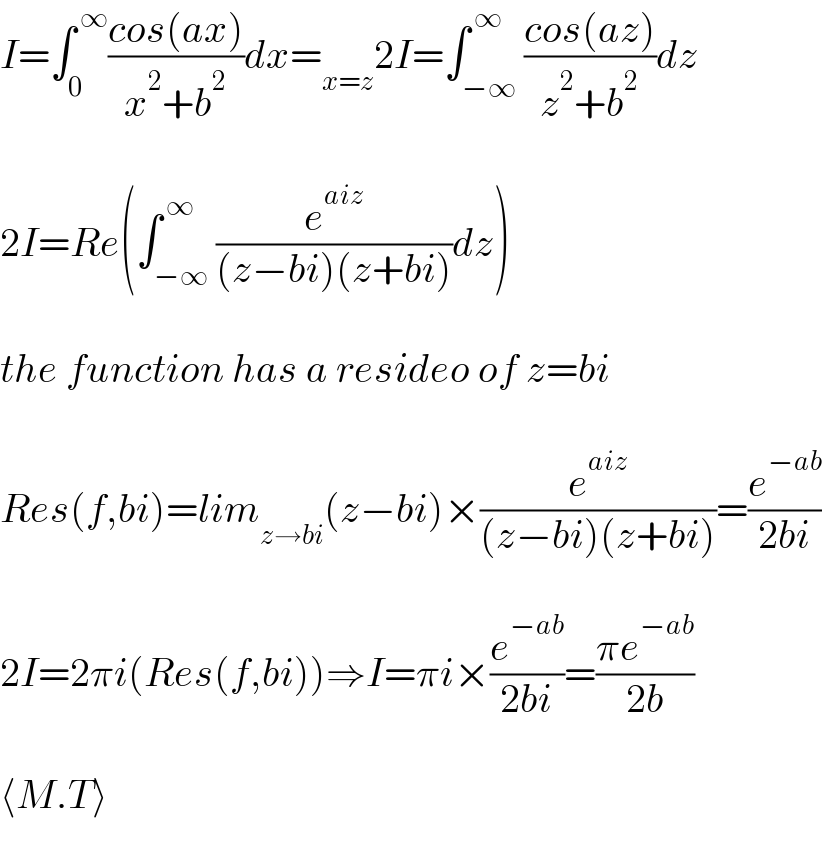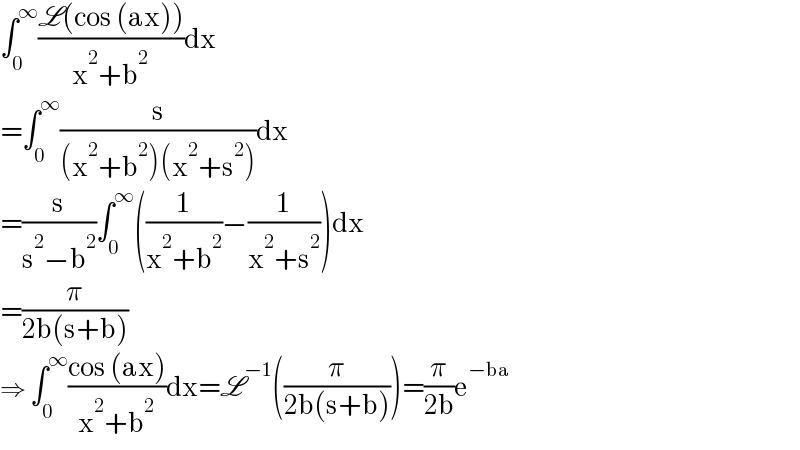
Question and Answers Forum
Question Number 147322 by Gbenga last updated on 19/Jul/21

Commented by Mrsof last updated on 19/Jul/21

Commented by Gbenga last updated on 19/Jul/21

Commented by Mrsof last updated on 20/Jul/21

Answered by qaz last updated on 20/Jul/21

